How elections work in
Michigan
Tens of thousands of Michiganders work tirelessly to make sure your ballot can safely and securely become a vote.
Learn more about what goes into every step of this process.



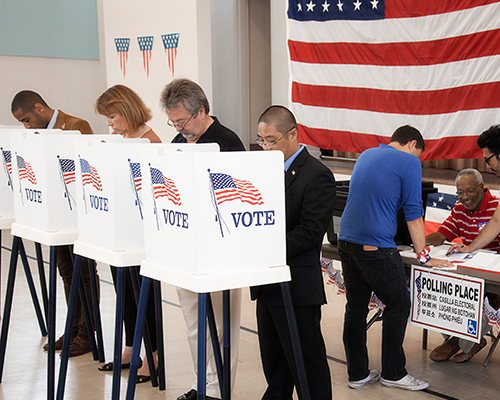
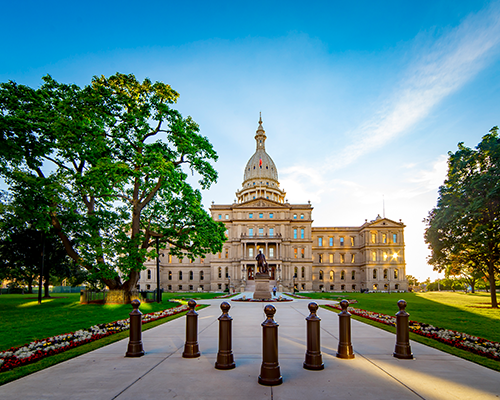


1
WHO RUNS MICHIGAN ELECTIONS?

Elections in Michigan are run locally, with state oversight, by 83 county clerks, 280 city clerks, and 1,240 township clerks. All in, more than 35,000 workers and officials ensure Michigan elections operate safely and securely every year.
These professionals are Republicans, Democrats, and Independents. They live in your community, are your neighbors, and include supporters of every candidate on the ballot. Together, these public servants come together, put partisan preferences aside, and work to ensure each election runs smoothly, and that each and every vote is secure and counted accurately.
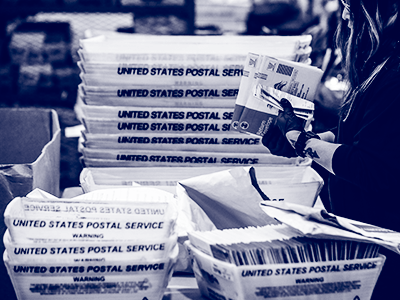
2
WHO CAN VOTE?


In order to legally vote in elections in Michigan, you must be:
- A U.S. citizen
- 18 years or older by Election Day
- A Michigan resident
- Not currently serving a sentence in jail or prison
Election officials perform a rigorous review in advance of each election to ensure each voter meets these qualifications.
To vote in a given township or city in Michigan, you must have resided in the place where you are registered for at least 30 days prior to voting.
Get more information on where, when, and how to vote in Michigan elections here.
Like most states, Michigan routinely removes deceased voters from the voter rolls using information from various sources, including Social Security Administration records, death records, or other reliable information. In addition, Michigan obtains death information from an interstate database called “ERIC.”
In Michigan it is illegal for non-U.S. citizens to vote. There are multiple safeguards to prevent non citizens from voting.
The majority of voter registrations occur during driver’s license transactions with the Michigan Secretary of State. The automatic voter registration process prevents voter registration from occurring if the individual shows a non-U.S. citizen document, such as a green card, when getting a driver’s license.
During the automatic voter registration process, people are shown the requirements for voter registration, including U.S. citizenship, and given the opportunity to opt out.
After voters are registered they receive a voter information card in the mail. If they have been accidentally registered they can contact the clerk and cancel the registration.
There are more than 7.9 million Michiganders of voting age, and Michigan currently has 7.2 million active registered voters.
Michigan election officials regularly check the voter rolls to identify people who may no longer be eligible to vote in Michigan. When they find potentially ineligible voters (for example, people who may have moved out of state), officials follow a strict process to keep the rolls accurate.
Inactive voters who do not vote in two consecutive federal election cycles after being marked inactive are removed from the official state voter rolls. This process follows federal and state law, and Michigan election officials must comply, just like every other state.
Michigan election officials have cancelled more than 800,000 out-of-date voter registrations since 2019, underscoring Michigan’s strong voter list-roll maintenance processes.
Primaries: In Michigan, you can vote in the primary of the political party of your choice, and you do not need to be officially registered with that party to do so. In primaries, you must choose from among one party’s available candidates; voting for candidates in different parties on the same primary ballot will cause your votes not to be counted.
General Elections: In non-primary elections, like the general election in November, voters can vote for candidates in any political party.
Note that elections can be held at the local, county, state, and federal levels. These elections occur at various times of the year. A complete calendar of Michigan elections can be found here.
3
HOW DOES MICHIGAN PREPARE FOR ELECTIONS?

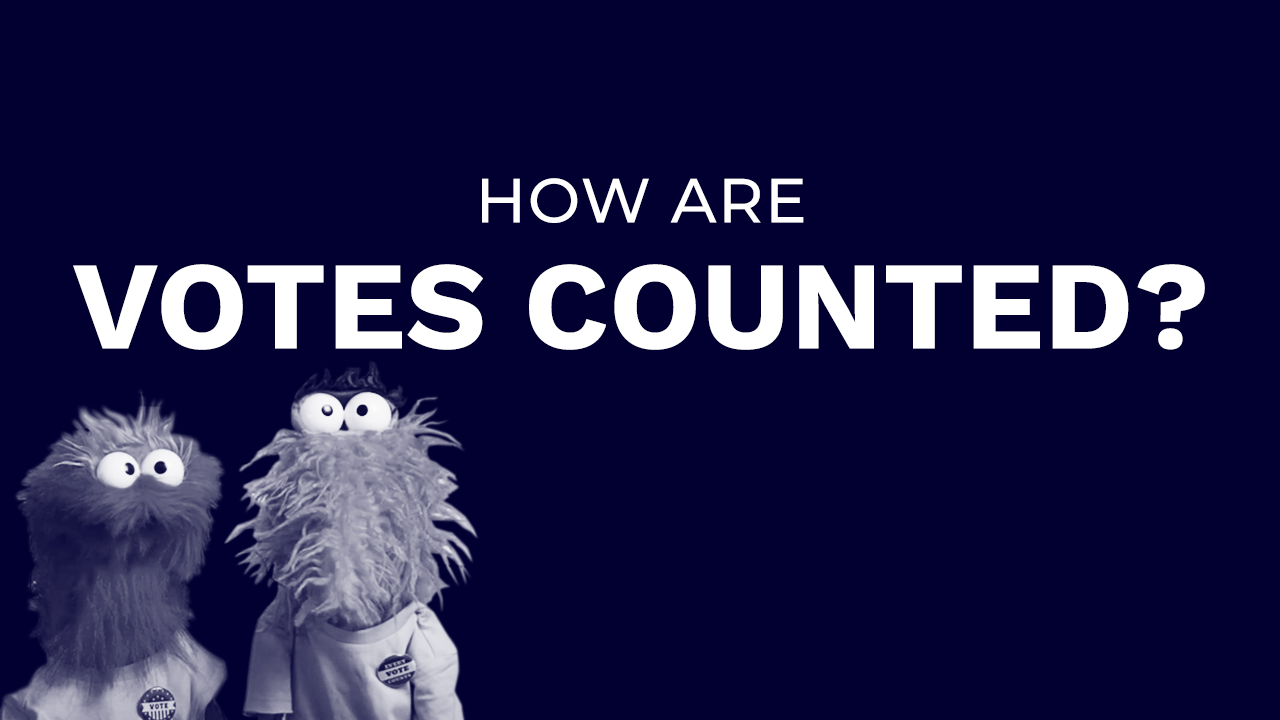
In the months leading up to Election Day, Michigan’s election officials hire and train thousands of local election workers, prepare polling places, and rigorously test voting machines to make sure they work properly.
These officials also determine locations for polling places and secure drop boxes, as well as the hours and days those will be available. There are almost 5,000 polling places spread across the state’s 1,520 cities and townships.
4
HOW DO YOU GET & CAST A BALLOT?

All Michigan elections use paper ballots, so that there is a record of each and every vote.
There are two different types of paper ballots you can use to vote in Michigan:
Absentee Ballot
Only verified voters who submit an application can receive an absentee ballot.
Trackable, secure ballots are sent via USPS, and you can return them either by mail, in person to your local elections office, or in a secure ballot drop box.
In-Person Ballot
You will receive a paper ballot at your polling place after presenting your photo ID or signing an attestation about your identity.
Michigan now offers in-person early voting in addition to in-person voting on Election Day.
Once you decide how you want to vote, it’s time to submit your ballot! You can do that…
By Mail
If you have applied for and received an absentee ballot, you are eligible to return it by mail.
Via Secure Drop Box
Absentee ballot drop boxes are available in Michigan. All ballot drop box must be clearly labeled, securely locked, and in a public, well-lit area with good visibility. Only a city or township clerk or their staff is authorized to collect the ballots from the secure drop box.
In-Person
Voting during the early vote period or on Election Day allows a voter to cast a paper ballot in person.
You can also return an absentee ballot in person to your local elections office or to an early vote location during operating hours.
5
HOW ARE BALLOTS KEPT SECURE?

Michigan uses approved, certified voting machines that are routinely tested and maintained to ensure they will provide accurate results during the election.

All ballots in Michigan are subject to “chain-of-custody” requirements, which means non-partisan election officials are legally required to monitor and track every ballot through each stage of the process. This includes ballots that are voted by mail, through secure drop boxes, and in person.
Voting by mail has been used in the U.S. since the Civil War and has a long history of being safe and secure. In 2018, Michigan voters overwhelmingly adopted a constitutional amendment expanding the use of mail-in ballots.
6
HOW DO I KNOW VOTES ARE COUNTED ACCURATELY?

Vote counting is overseen by local election workers in your county. Additionally, poll observers from both major political parties are permitted to observe ballot processing and tabulation.
Ballot tabulation machines are used to count ballots and tabulate the final results. Processing and tabulation of absentee ballots can begin before Election Day, but ballot totals – from absentee and in person votes – are not released until after polls close on Election Day.
Results announced on election night reflect only a partial tally of all votes cast and are not the official results. Likewise, projections or exit polls about election outcomes made by the media are also not official. Only the final certified results of Michigan elections are official.
Michigan uses paper ballots for voting. The vote tabulation machines used to count these paper ballots also print out vote counts. These paper ballots and paper receipts of vote counts provide a paper trail that can be examined if needed.
Depending on the type of election, Michigan elections offices conduct certain kinds of post-election audits to verify that the election was conducted correctly and followed state law.
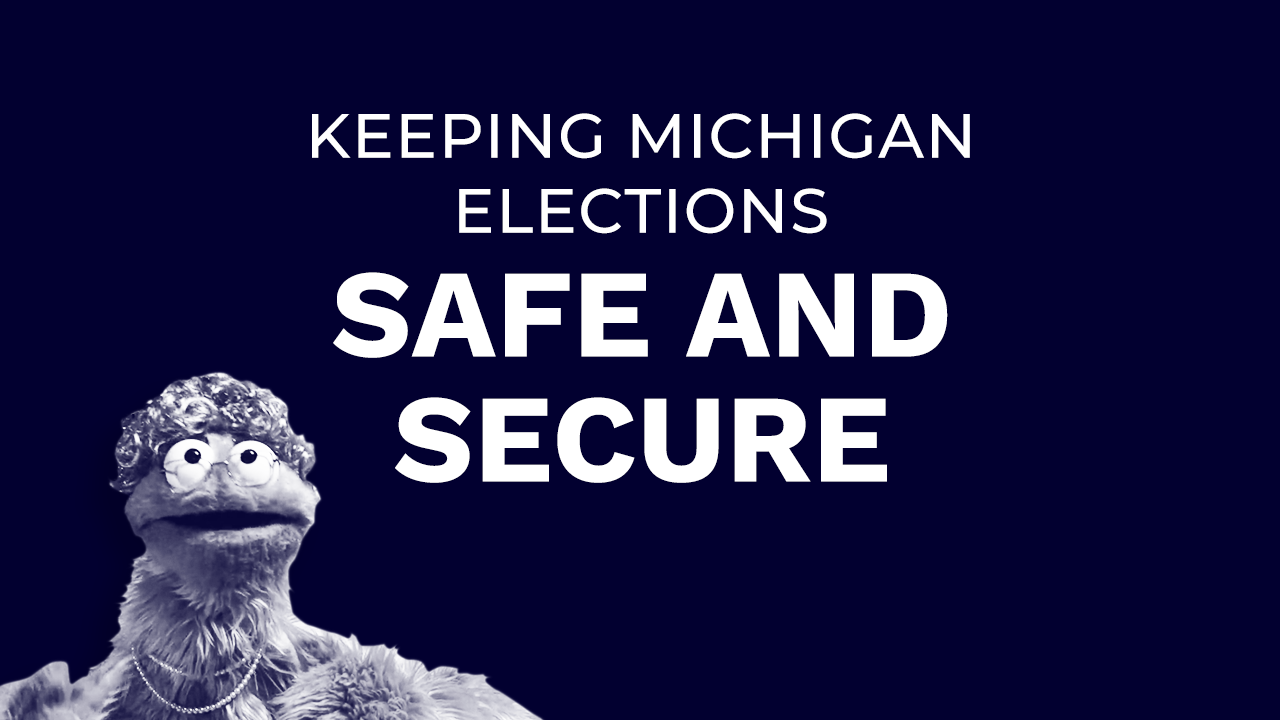
7
HOW ARE RESULTS VERIFIED?

After all eligible votes are counted and confirmed by local elections offices, they report these results to their respective counties where a bipartisan county board of canvassers has 14 days to “canvass” these results, examining various records and official documentation, to verify their accuracy.
Then, the Michigan State Board of Canvassers, another bipartisan entity, examines and certifies the statewide results by the 20th day after the election.
If any recounts are needed, Michigan law requires that these occur after the canvass and certification process.
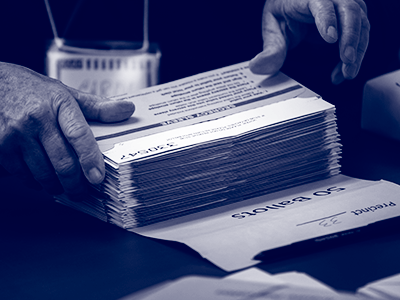
Each of Michigan’s 83 counties has a county board of canvassers. By law, these boards are bipartisan, and each has 2 Republicans and 2 Democrats.
There is an automatic recount of all state precincts in Michigan if the difference in votes between the top two statewide candidates is 2,000 votes or less. A candidate running in an election can also petition for a recount if they believe that the canvass of the votes cast in their election was incorrect due to fraud or error. In statewide races, the state Board of Canvassers supervises any recounts that occur.
FREQUENTLY ASKED QUESTIONS
You may still have questions about how elections work in Michigan!
Here are some of the most common:
There are a variety of trusted and reliable sources available to get information about Michigan elections, voting, and results.
The Michigan Voter Information Center provides up-to-date links and information about when, where, and how to vote.
Your local city or township elections office is also a good place to turn with any questions. Many elections offices maintain up-to-date websites and social media accounts to keep their voters informed. You can also call them with specific questions. To find your local elections office, click here.
Trusted local news sources like your local or regional newspaper, radio, or TV station can have up-to-date information on what’s going on with elections near you.
In this day and age, this is, unfortunately, an important question. False information about voting and elections can easily spread online and on social media, so it’s always good to take a moment to consider the accuracy of any stories or claims you see.
Before you share or act on something you’ve read online, make sure the place you saw it is credible, verified, and has been backed up or supported by additional trusted sources.
There are clues and tools to help you hone your sense of whether what you’re reading online can be trusted.
Fraud in elections is extremely rare. In the 2020 election, more than 250 bipartisan election audits were conducted in Michigan. These audits each and collectively confirmed the integrity and accuracy of Michigan’s 2020 general election.
More than 60 court cases and investigations by Michigan Republicans found no evidence of massive fraud that would affect the outcome of the 2020 election. Donald Trump’s Attorney General, Bill Barr, as well as Trump’s Department of Justice investigated and found no evidence of widespread fraud in the election. No claims of substantial election fraud have survived legal scrutiny, and many were dismissed as meritless by Trump-appointed judges.
Even experts hired by the Trump campaign to identify instances of voter fraud in the 2020 election did not find fraud that would have changed the results. The handful of instances of inappropriate votes that they did find were split across both parties.
Incorrect information about elections can spread quickly. You might see false information online on social media or in a text message or phone call.
If you see false information about where, when, or how to vote (or register to vote), it is a good idea to alert trusted officials.
Intentionally deceiving qualified voters to prevent them from voting is a crime. You can report potential election crimes—such as disinformation about the manner, time, or place of voting—to:
- your local election clerk;
- the Michigan Department of State; and or
- the FBI’s Michigan Field Office or electronic tips form.
Michigan elections are run by volunteers in our communities and trusted elections officials who bring years of expertise to ensure that our state’s system of elections works – by the people and for the people.
If you are interested in getting involved in the elections process, there are several things you can do. They include:
- Register to vote & cast your ballot.
- Sign up to work as a poll worker (also known as an “election inspector”) in your local city or township.
- Volunteer and get trained with your local political party or other qualified organization to be a poll observer during the elections process. Both major political parties appoint poll observers in every Michigan election.